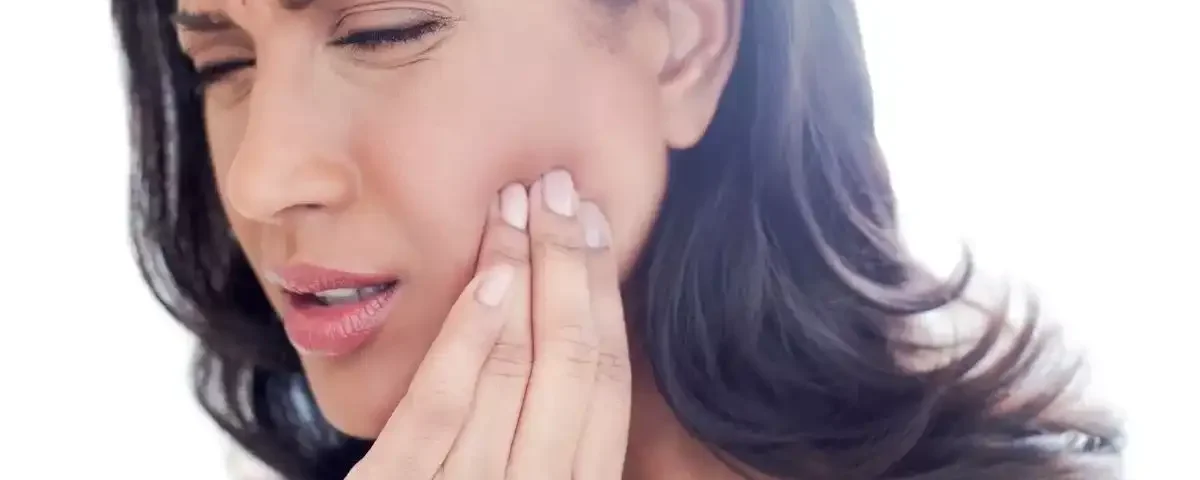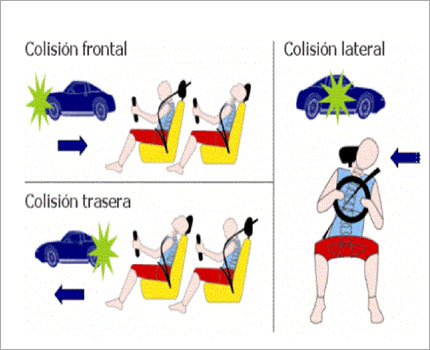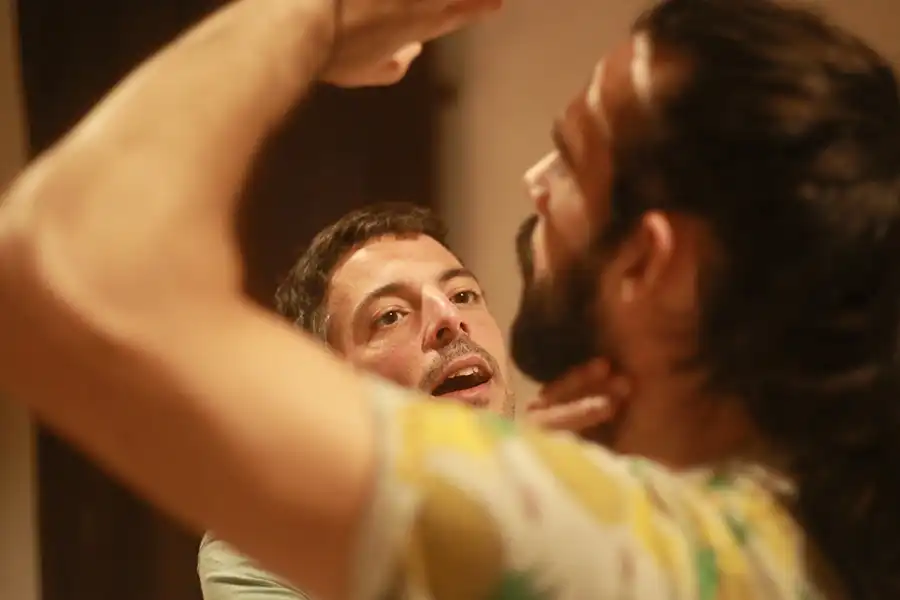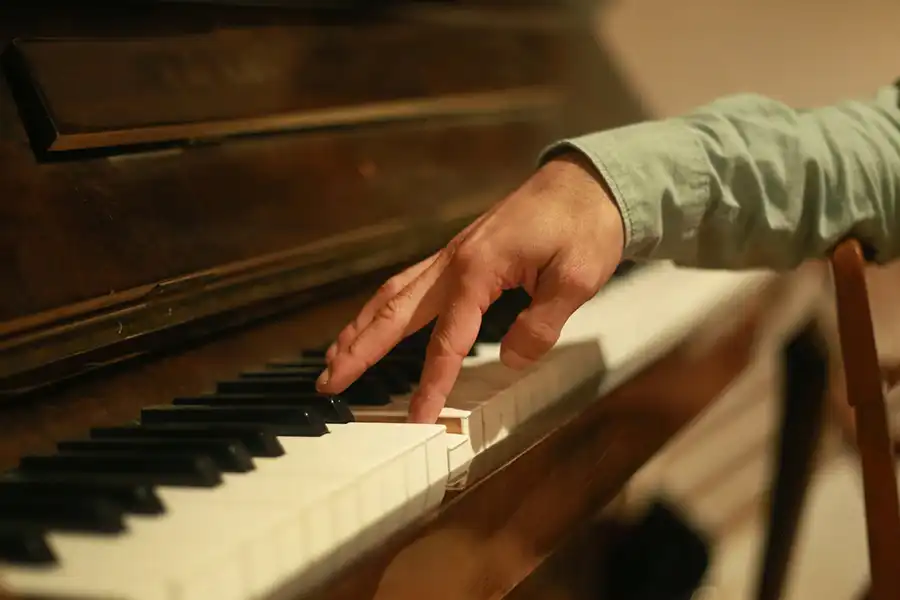
Trismus, also known as “locked jaw” or “spasm of the masticatory muscles,” is a condition characterized by the limitation of mouth opening due to the contraction or stiffness of the jaw muscles. This condition can even prevent the mouth from opening, affecting basic functions such as speaking, chewing, swallowing, or breathing normally.
In this article, we will explain what trismus is, its main causes, and how to release the tissues involved in jaw mobility.
What is trismus?
Trismus is a manifestation of an underlying problem and is diagnosed when a person has difficulty opening their mouth, being a clear sign of functional restriction.
The most common symptoms are: pain when trying to open the mouth, feeling of jaw stiffness, difficulty speaking or eating, facial pain, ear pain, or pain in the temporomandibular joint (TMJ).
Main causes of trismus:
1. Temporomandibular Joint Dysfunction (TMJ)
One of the most frequent causes of trismus is TMJ dysfunction, which connects the jaw to the skull. Joint issues such as displacement of the articular disc, bite problems, inflammation, or bone wear can trigger involuntary muscle tension and restriction of jaw movement.
2. Bruxism and chronic muscle tension
Bruxism (grinding or clenching the teeth) overloads the masticatory muscles, especially at night when involuntary activations of the sympathetic system occur during certain sleep phases.
This constant overload causes muscle spasms, fatigue, and stiffness, encouraging the onset of trismus. Emotional stress is also a contributing factor to chronic muscle tension in the jaw, and many people release stress through these muscles.
Other causes may include orofacial infections, traumatic injuries, tumors, or post-operative fibrosis.
Why is trismus so intense?
The muscles involved in trismus, especially the masticatory muscles—masseter, temporalis, and pterygoid—are very powerful because their main function is to forcefully close the jaw to crush food and protect the mouth.
From an evolutionary point of view, our ancestors needed strong jaw force to chew hard foods such as roots, raw meat, and nuts. The masseter, for instance, is a short, thick muscle with an almost vertical orientation, giving it great mechanical advantage to close the jaw with significant strength. As a curious fact, the masseter can generate a bite force of up to 90 kg (198 lbs).
Craniosacral Therapy
To better understand why Craniosacral Therapy is an important support in this condition, we must remember that the cranial vault bones are not rigid or fused, as was believed in the early 20th century; they need to be mobile so that the cerebrospinal fluid can flow properly through the craniosacral system, thus preventing restrictions in the fibrous tissue.
We know that the bones of the skull articulate with the jaw through the temporal bone via the temporomandibular joint (TMJ), and that these two structures work together to allow the natural flexion-extension movement.
Craniosacral Therapy is a great support for this condition because it recognizes the importance of mobility in the skull and the TMJ, as well as other structures in the facial complex involved in chewing.
During a Craniosacral Therapy session, we assess the dysfunctions in the TMJ and release the restrictions in the craniosacral system, promoting a state of relaxation in the patient.
Craniosacral Therapy (CST) is a gentle manual technique aimed at releasing restrictions in the craniosacral system (which includes the skull, jaw, spine, and sacrum) through subtle manipulations.
Key benefits of CST for trismus:
-
Reduction of muscle tension: CST acts on the deep tissues and fascia surrounding the masticatory muscles, helping to release chronic tensions that limit jaw movement.
-
Nervous system regulation: By calming the sympathetic nervous system, CST encourages a relaxation response that reduces bruxism and improves sleep.
-
Improved cranio-mandibular mobility: Through gentle manipulations of the head and neck, gradual reopening of the jaw and alignment with the TMJ can be facilitated.
-
Holistic approach: CST is not limited to symptom treatment but seeks to restore overall postural balance, addressing deep causes of trismus such as stress, muscle tension, and neurological imbalances.
Trismus is a clinical manifestation that can have multiple origins, although the most common today are related to TMJ disorders and bruxism—both closely linked to the modern lifestyle. By affecting the masticatory muscles, trismus can impair vital functions such as eating and speaking, seriously affecting quality of life.
Effective treatment of trismus requires a multidisciplinary approach.
You are welcome to explore the benefits of Craniosacral Therapy on the Temporomandibular Joint (TMJ), and how other complementary supports contribute to patient well-being in cases of “locked jaw”.




